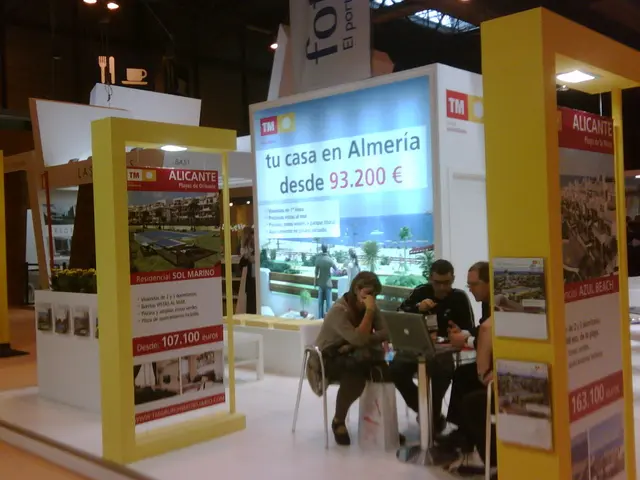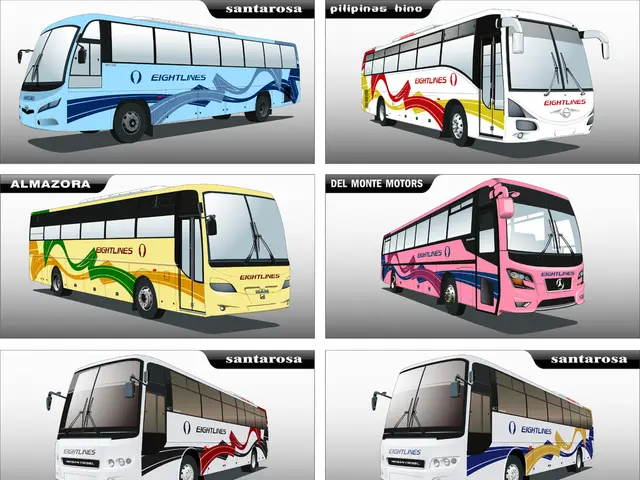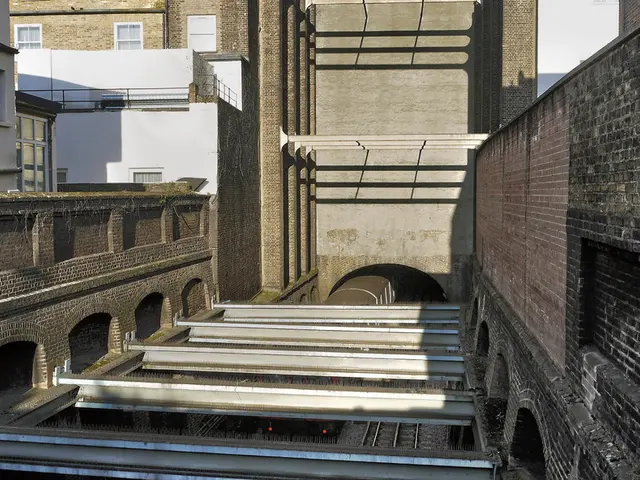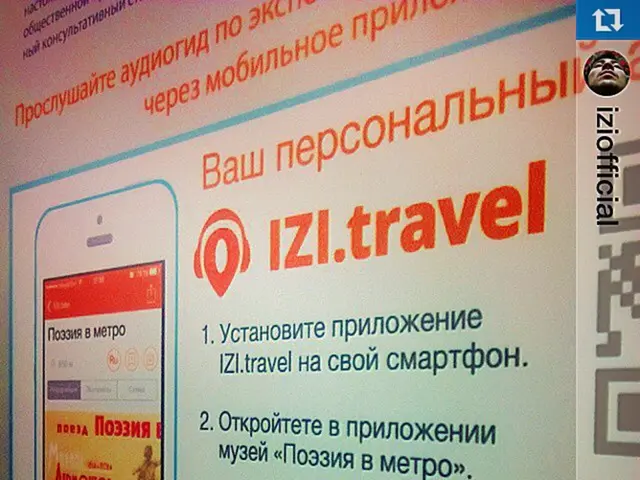Funding India's Blueprint for Renewable Energy (Second Installment)
In a significant move, REC Limited, a Maharatna public sector enterprise in India, expanded its business portfolio in 2022-23 to include lending to the non-power infrastructure and logistics sector. This strategic shift comes as part of the organisation's ambition to grow its renewable loan book portfolio from the current 9% to a target of 30% by the end of 2030.
Established in 1969 under the Ministry of Power, Government of India, REC's primary objective was to finance rural electrification projects. Over the years, its mandate has expanded to include financing power generation, transmission, and distribution projects, as well as renewable energy projects.
The growth of REC's renewable energy portfolio is supported by various initiatives from the government. The Ministry of New and Renewable Energy (MNRE) formulates policies, offers subsidies, and provides tax incentives for renewable energy projects in India. State Renewable Energy Development Agencies (SREDAs), on the other hand, manage state-specific subsidies and incentives for renewable energy projects.
Infrastructure development in India is primarily driven by government grants or borrowing from domestic and international markets, including multilateral development banks (MDBs). The government also encourages the adoption of innovative financing mechanisms such as public-private partnerships and structured financing instruments to sustain infrastructure growth.
The NBFI sector, including institutions like REC Limited, plays an instrumental role in ensuring India meets its ambitious renewable energy targets. Non-banking financial institutions (NBFIs) such as REC Limited provide term loans, project financing, and bridge financing for renewable energy projects.
In July 2024, REC Limited collaborated with Deutsche Bank's GIFT City branch to provide a US$200m external commercial borrowing (ECB) loan facility aimed at financing eligible green projects in India. This marks the first green loan of this kind extended by Deutsche Bank to an Indian government entity since its establishment in GIFT City in July 2022.
REC's loan book stood at €57bn in March 2024, with the portfolio consisting of conventional power generation, transmission, distributions projects, and renewable energy. Foreign currency borrowings contribute 29% of REC's overall borrowings, 99% of which are hedged until maturity. As of 31 March 2024, the asset portfolio is well diversified with no single borrower representing more than 10% of the portfolio.
In addition to its role in the power sector, REC Limited has been appointed as the National Program Implementing Agency for the 'PM Surya Ghar Muft Bijli Yojana', aiming to install rooftop solar systems on 10 million residential households by March 2027.
The non-power infrastructure and logistics sector lending, along with the continued focus on renewable energy, positions REC Limited as a key player and financing enabler in India's renewable energy sector. REC's efforts are also supported by other government-backed financial institutions like the Indian Renewable Energy Development Agency (IREDA), which specialises in renewable energy project financing.
Deutsche Bank also provides support to India's renewable energy sector, and the collaboration between REC Limited and Deutsche Bank's GIFT City branch in July 2024 is a testament to the growing partnerships aimed at driving sustainable growth in India's renewable energy sector. The NBFI sector has grown substantially over the past decade, supported by policy reforms, digital transformation, and growing credit demand.
Read also:
- Understanding Hemorrhagic Gastroenteritis: Key Facts
- Stopping Osteoporosis Treatment: Timeline Considerations
- Trump's Policies: Tariffs, AI, Surveillance, and Possible Martial Law
- Expanded Community Health Involvement by CK Birla Hospitals, Jaipur, Maintained Through Consistent Outreach Programs Across Rajasthan






